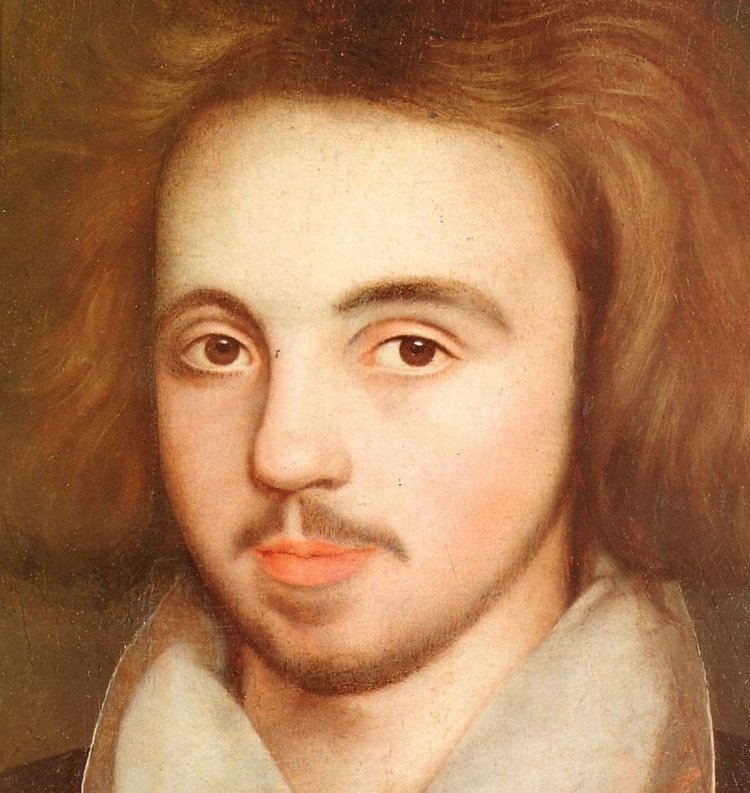
I asked a variation of this question a few weeks ago on Twitter and Facebook but nobody took me up on it. Since those two channels are very time-sensitive (if you’re not there when it’s posted you’ll usually miss it forever), I thought I’d post it here as well. I still get traffic on posts from ten years ago.
The question is this. We love to debate whether Shakespeare was gay. But from everything I’ve read we all seem to be in agreement that Christopher “Kit” Marlowe, Shakespeare’s popular contemporary, definitely was. Can somebody who is expert in this area elaborate a little bit?
Do we have actual evidence in Marlowe’s words? Or just an interpretation of his work that’s a little more on the nose than Shakespeare’s?
If it is somehow obvious now, was it also obvious then? What would it have meant to be a gay man in Elizabethan England?
And the most interesting question to me, would Shakespeare (and Marlowe’s other fellow writers) have known? How exactly would that play out? Maybe it’s one of those “poorly kept secrets,” where he was never really “out” to the world, but only his inner circle?
Of course, this is all based on my assumption that Shakespeare and Marlowe knew each other quite well. Marlowe didn’t die until Shakespeare was something like 29 years old. Aren’t there parts of Henry VI that are direct homages to Marlowe? I could be entirely wrong here.
I hope somebody out there knows what I’m trying to say. It feels like what we “know” about Marlowe must open up more questions than it answers. But I’ve never really seen much discussion about the answers to those questions.

There seem to be no takers willing to answer this post, no doubt because it raises such a host of complicated questions. Let me answer just one small part of it, which is that the generally accepted idea that Marlowe was (in a modern sense) gay rests on very slender direct evidence.
There seems to be only one direct statement implying he was a homosexual–and it is far from reliable. Just days before Marlowe’s death in 1593, Richard Baines, a government spy with a disreputable past of his own produced a longish note accusing him of atheism and heresy. This was backed up with around twenty supporting statements about controversial things Marlowe allegedly believed about religion, including that Jesus and John the Baptist were lovers. The only well-known one of these supporting statements, however, is that Marlowe (allegedly) said, “That all they that loue not Tobacco & Boies [= boys] were fooles.”
It is tempting to want to believe Marlowe said this because it is such a wonderful example of queer wit, but in the context of an over-the-top document accusing him of capital crimes submitted by a professional snitch who had once confessed to trying to poison an entire seminary, it is pretty questionable. That it is support of a government investigation that already resulted in the torture of playwright Thomas Kyd, however, suggests that having such an accusation made about you was very dangerous.
I am just now discovering your article in July 2025. Here goes. My background is higher education in theatre and English literature; therefore, I feel qualified in addressing your query. I know when I studied Shakespeare and the Renaissance playwrights in undergrad, we in the theatre were certain every playwright was gay. That could have been because so many in theatre are so. We had no doubts about Marlowe. Yes he possessed all the trappings. Now, what would be the best approach to affirming that someone associated with theatre in the Sixteenth and Seventeenth Centuries was gay? If we look at the history of theatre, we discover the field has always attracted gays. Ancient Greeks in theatre were very gay. Why wouldn’t the men in the Renaissance in England involved in theatre in any way be gay? The concern they would have faced; however, would have been persecution from the religious sectors. In Shakespeare and Marlowe’s England religion was being torn apart because of conflict among the new Anglican Church, the Catholics and the Puritans. I’m certain that the gay men in theatre had to be discreet in expressing their feelings for one another. Flamboyance was certainly not a choice for them. There were no Gay Pride parades. Transvesticism was the way to go on the stage, but not out in public. It is clear to Elizabethan scholars, at lease moi, that these playwrights were gay by birth, but bisexual due to the rules of the society in which they lived. I hope I have answered your question on Marlowe.